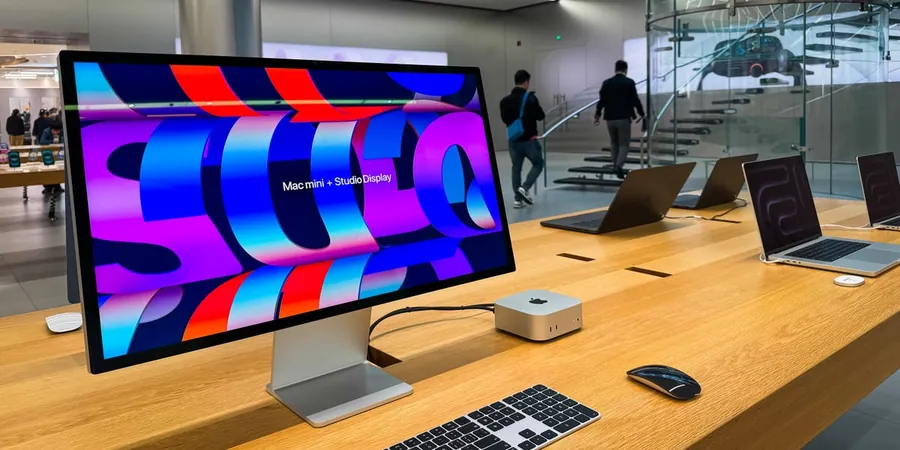
Unlocking Apple's Chipmaking Strategy: The Secret Weapon Behind Its Silicon Success
2024-11-18
Author: Michael
Introduction
Apple has made waves in the tech industry by increasingly utilizing its own silicon chips in its cutting-edge devices. This strategic move has not only given the tech giant control over its product performance but has also been described as its “secret weapon” in an evolving market.
Insights from Apple Executives
In a recent interview with The Indian Express, key Apple executives highlighted the advantages of designing chips tailored specifically for their products. Tim Millet, Vice President of Platform Architecture, and Tom Boger, Vice President of Mac Product Marketing, shared insights into why Apple's decision to manufacture its own chips has provided a significant competitive edge.
Boger emphasized, “We don’t make a bunch of chips and then decide where we are going to put them. We design our chips from the ground up for our products.” This approach allows Apple to seamlessly integrate its hardware and software, resulting in superior performance and user experience.
Millet expanded on this concept, noting that by manufacturing chips exclusively for internal use, Apple can avoid the pitfalls faced by companies that sell chips to third parties. He pointed out that these companies are burdened with the additional costs that come with including profit margins for their clients.
The Journey Begins
Apple's journey into chipmaking began in 2010 with the introduction of the A4 chip, utilized in the first-generation iPad and the iPhone 4. Since then, Apple has progressively shifted towards designing its own semiconductors, a strategy that not only ensures more control over technology but also influences its relationships with traditional chip suppliers like Intel and Imagination Technologies.
Recent Innovations
Recently, Apple unveiled its latest innovations—the M4 Pro and M4 Max chips—designed to further enhance the performance of its Mac lineup. Millet explained that Apple silicon integrates three major components: architecture, design, and process technology. However, the company’s “secret weapon” lies in its collaborative approach to chip design, working closely with system teams and product designers to envision new possibilities.
Sourcing Chips Domestically
In a significant development, CEO Tim Cook announced in 2022 that Apple would begin sourcing chips manufactured in the United States for the first time in nearly a decade. This initiative will see Apple becoming the largest customer of a new TSMC chip plant in Arizona, a move aligning with President Joe Biden’s ambition to bolster domestic chip production. The CHIPS Act, signed into law in 2022, allocated $52.7 billion to support research, development, and manufacturing of semiconductors in the U.S., reflecting a growing national focus on technology independence.
Implications for the Tech Industry
As Apple continues to advance its chipmaking capabilities, the implications for the tech industry are profound. The company’s ability to innovate and maintain control over its products could set a new standard for competitors struggling in a landscape dominated by large semiconductor companies. What does this mean for consumers? Potentially, it signals a future filled with faster, more efficient devices optimized for a seamless digital experience. Stay tuned as Apple's silicon journey unfolds!









 Brasil (PT)
Brasil (PT)
 Canada (EN)
Canada (EN)
 Chile (ES)
Chile (ES)
 España (ES)
España (ES)
 France (FR)
France (FR)
 Hong Kong (EN)
Hong Kong (EN)
 Italia (IT)
Italia (IT)
 日本 (JA)
日本 (JA)
 Magyarország (HU)
Magyarország (HU)
 Norge (NO)
Norge (NO)
 Polska (PL)
Polska (PL)
 Schweiz (DE)
Schweiz (DE)
 Singapore (EN)
Singapore (EN)
 Sverige (SV)
Sverige (SV)
 Suomi (FI)
Suomi (FI)
 Türkiye (TR)
Türkiye (TR)